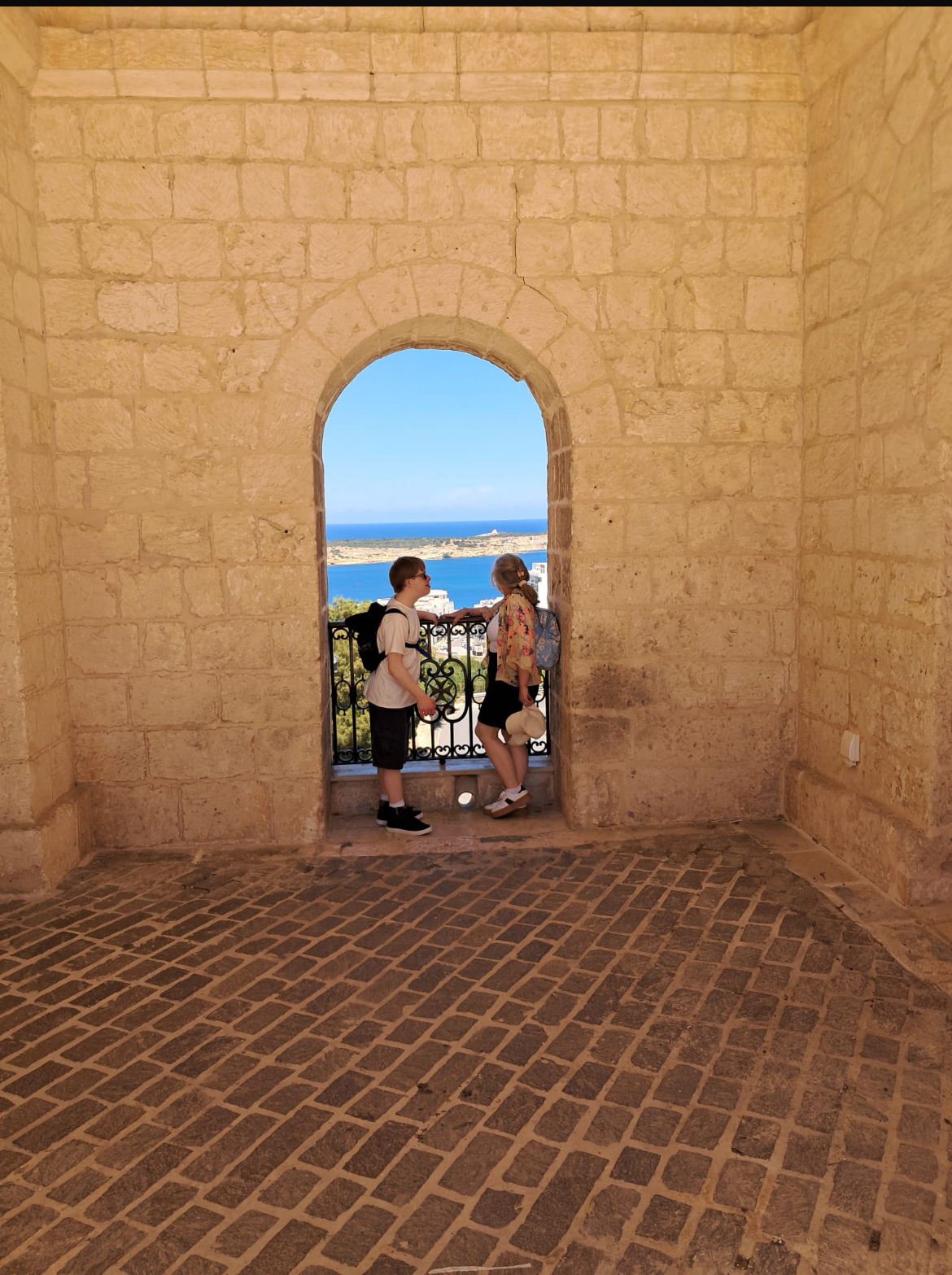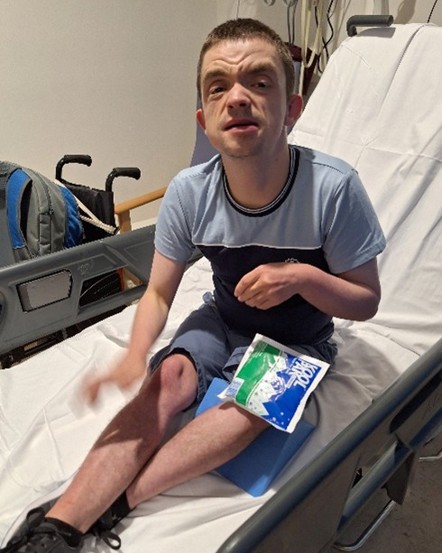What We Learnt On Holiday

Kerry Fender
Down’s Syndrome, my family and me – one mum’s account of family life with an extra chromosome.

It is nine years since we last took Freddie on a ‘proper’ holiday. Not because taking him away is too difficult, but because we have been renovating a house in the meantime and all our spare time and cash has been taken up by that. But we had reached the point where we all really needed a break, and so we decided to renew our passports, and book ourselves a trip abroad.
Last time we took Freddie overseas he was seven, but developmentally more like a three-year-old, a charming, happy-go-lucky three-year-old, content to splash in the pool with his (much) older sister, or to sit on a sun lounger or in his buggy under a sunshade, absorbed in a book, toy, or gadget. He mostly just went with the flow.
Now, though, he’s an incredibly headstrong teenager, surging with hormones, much more aware of the world around him and, it seems, much more affected by external stimuli, much more likely to become stressed or agitated by what’s going on around him or by any changes to routine. His sister now has a career, a partner, a home of her own, and his older brother doesn’t really ‘do’ holidays, so it would just be the three of us. We were very nervous at the prospect, but knew we had to take the plunge, to prove to ourselves that we could do it: we could have a holiday like other people do.
It was a steep learning curve. Here’s what we learned:
Online passport applications are great: applying for our passports online meant that I had a chance to explain why Freddie’s photo didn’t quite meet the regulation ‘face the camera, no smile’ standard, which saved a lot of time and stress in getting his photo accepted.
Lists and schedules are our friends: and we need to remember this. Freddie thrives on routine and familiarity and when the routine has to change, even for a nice reason, he struggles. His auditory memory isn’t great, so simply sitting him down and explaining how and why it is necessary to get up at 2am to make a 6am flight is a whole world of nope. Verbal instructions are confusing and, chances are he’d soon get overwhelmed and simply refuse to cooperate and we’d miss the flight.
But a block of study cards held together on a metal ring, with one, simple instruction on each card is much more accessible to someone with a visual memory and learning style. We went through it with him beforehand and left it by his bed so he could look at it whenever he wanted to. Come the 2am wake-up call, he cooperated beautifully, ticking off each card as he completed the instruction. We made it to the airport early with plenty of time for a packed-lunch-style breakfast and a wander round the duty-free.
Special Assistance is not only for wheelchair users: We never used special assistance in the past, thinking that we should be able to manage between us, but after a lot of worrying about whether we would be able to make it through security without incident, we did book it this time, and it was worth it. Having the letters SA on Freddie’s boarding pass, plus his sunflower lanyard meant that we were waved through the assistance lanes at security and passport control. A member of staff assisted Freddie through the scanner, then waited with him to make sure he stayed put while I went through. We got priority boarding too, so we were able to get Freddie settled in his seat with his iPad on before most other passengers got on, so we avoided the scrum of people looking for their seats and trying to stuff bags in the overhead lockers, which might well have resulted in a very awkward sit-down protest.
‘Rest Days’ are a vital part of the itinerary: In order to prevent Freddie from becoming so overwhelmed and overtired that he completely refuses to do anything other than sit on his bed in the apartment, it is essential that for every day of sightseeing or activities, we follow it with a day of lying by the pool under a parasol, reading, chatting, snoozing, sipping cool drinks and just completely chilling out. Perhaps next time we need to book ten nights instead of seven to allow for this.
Make sure to book accommodation that offers really good swimming facilities: Swimming is a great way to coax Freddie out of ‘NO’ mode. One day, when Freddie did get stuck in refusal mode, more out of desperation than any actual thought-out plan, I suggested we go and look for the indoor pool I’d seen on the hotel particulars when I booked. This seemed to break the ice with him, he agreed, so we grabbed our things as quickly as we could. We found it in the basement spa, a calm, cocooning space, with chunky wooden loungers, twinkly star-like lights in the ceiling and gently warm water. Freddie loved it. After swimming for a while he seemed much happier and even agreed to leave the hotel, get on a bus and go to another town for lunch. It proved to be a great way to end the day too – it really seemed to help him regulate .
Just because Freddie will happily wear a t-shirt and shorts when it’s 28 degrees in Malta does not mean he will wear them when it’s 28 degrees in the UK: It doesn’t matter if it’s the same sweltering temperature at home as it was abroad, when in the UK you wear jeans and a hoody. Them’s the rules. End of.


